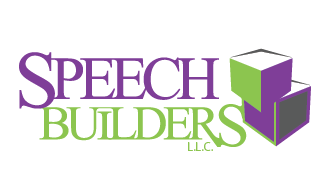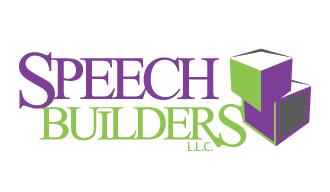Scheduling a speech language evaluation for a child is a big step for many parents, but it can come with some uncertainties. “What will the evaluation look like?” “How long will it take?” “Will they label my son?” “Does my daughter need therapy?” I can assure you, it isn’t as daunting as it seems. While each practice and therapist may do things slightly differently, the general flow of things is usually pretty similar.
First, the therapist will need to collect a case history. At SpeechBuilders, we have parents fill out all of that information prior to scheduling an evaluation. That way the therapist can review it beforehand, and time during the actual evaluation doesn’t need to be spent answering all those questions. In reviewing the case history and talking with the parent, the therapist will determine what type of evaluations needs to be conducted. These can include articulation, expressive and receptive language, and fluency.
Next, the formal evaluation will be conducted. Depending on the age of the child and the primary concern of the parent/physician, different evaluations can be administered. For very young children, the evaluation may primarily consist of interviewing the parent and observing the child. For older children, the evaluations may look more like an oral test, where the child has to answer questions, point to pictures, or give speech samples by labeling or describing pictures. Some evaluations include play activities, where the child will be asked to do things like help feed a toy bear or pick out different colored markers from a group. The length of the evaluation depends on many factors, such as age, attention span, and specific test/tests being administered.
Lastly, the therapist will score the test and review the results with the parent. Most formal evaluations will yield a standardized score, which helps the clinician and the parent understand if the child has a delay or impairment in any area, and if so, how severe the impairment is. After reviewing the scores, the therapist will then make recommendations regarding therapy. Most children at SpeechBuilders are seen one to two times per week for 30-45 minutes. The therapist and the parent can discuss areas of strength and weakness, and start to come up with goals that can be targeted during therapy sessions. During this time, the therapist may also make recommendations for additional evaluations or services, such as occupational therapy. The whole process typically lasts about 45 minutes to an hour.
Here are some tips to help the evaluation go as smoothly as possible.
- Try to make sure your child is well rested and has had a good meal or snack prior to the appointment. We don’t want tiredness or hunger causing fussiness and interfering with his or her ability to participate in the evaluation. Consider nap time when scheduling your evaluation.
- If possible, leave siblings at home. While we love getting to meet a child’s brothers and sisters, having multiple children in the evaluation room can make it difficult for the child and the parent to focus.
- Come prepared with examples of your concerns. If you are worried that your 2 year old isn’t talking, try to estimate the number of words they are saying. Even better, bring in a list of all the words in their vocabulary! If your child is stuttering, bring in a video to show the therapist in case your child doesn’t exhibit the stutter during the evaluation.
- Be honest. As therapists, we are here to help, not judge. Be honest about your child’s milestones, feeding habits, screentime, and behaviors. We need an accurate picture of your son or daughter so that we can make an appropriate diagnosis and come up with the best recommendations.
- Be ready to put in the work. Speech language therapy can be very effective, but it is even more effective when parents continue the work at home and incorporate strategies into their daily lives.















Leave A Comment
You must be logged in to post a comment.